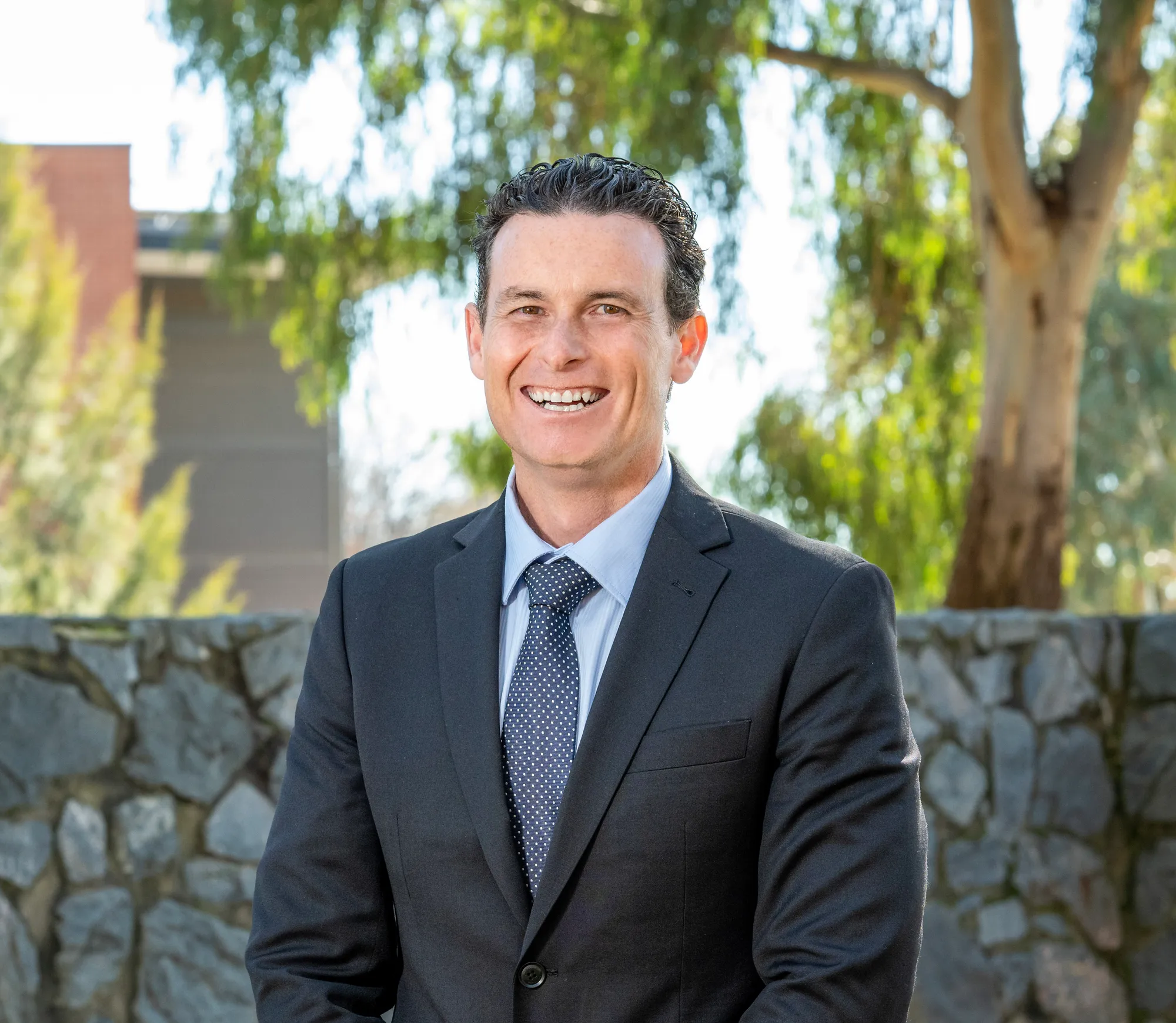The enduring value of leadership
By Mr Christopher Bradbury, Principal

The investiture of our 2026 Secondary Student Leaders this week provided the opportunity for staff, students, parents and carers to come together to celebrate the enduring value and importance of leadership. It was a moment to affirm the vital role our student leaders play in shaping the positive culture and future direction of Radford College.
I would like to congratulate our Year 11 students on their appointment to leadership positions for the coming year. They have been entrusted with great responsibility by their peers and teachers and we look forward to seeing them embrace the challenges and opportunities that lie ahead.
Leadership is not just about power and influence but also about accountability and responsibility. It is not for the faint-hearted, and if you are to do it well, it requires hard work.
In my address to the school community at the leadership induction, I took some time to share the following:
- The easy bit of leadership is to use your gifts for the betterment of oneself. The hard bit of leadership is to use your gifts for the betterment of others.
- The easy bit of leadership is to wear the badge. The hard bit of leadership is to deserve the badge.
- The easy bit of leadership is to do what is popular. The hard bit of leadership is to do what is right.
- The easy bit of leadership is to deal with policy. The hard bit of leadership is to deal with people.
- The easy bit of leadership is to enjoy its success. The hard bit of leadership is to endure its failure.
- The easy bit of leadership is to follow consensus. The hard bit of leadership is to follow conviction.
- The easy bit of leadership is administration. The hard bit of leadership is inspiration.
- The easy bit of leadership is to judge others. The hard bit of leadership is to judge yourself.
Without strong leadership, problems grow and opportunities are squandered. Schools, in particular, need to ensure they don’t become complacent and rather strive towards continuous improvement.

Leadership is necessary to drive positive change. Leaders solve problems. While we often call people leaders based on position, in reality, everyone is capable of leadership. At Radford College, we believe that through our academic, sporting, cultural, global and service experiences, we help young people develop the skills to lead themselves and others.
In my address to the school community at the leadership induction, I also shared the following fundamental characteristics of strong leadership:
A leader must have courage. The status quo is powerful, even when it's wrong. Leaders need to challenge the status quo. They are responsible for outlining where improvements can be made and have the vision to lead the way.
A leader must have the character to keep going when it's tough. When it's new and different, the going gets tough. Risk-taking is very often accompanied by making mistakes. Leaders need to be driven to keep going, even in the face of resistance. Leaders must have the character to keep the team going when it gets tough and embrace challenges as rich learning opportunities.
A leader must have the ability to collaborate with others. Leaders must assemble strong teams. A leader never achieves anything on their own. You're not leading if others don't follow. Great leadership is galvanising and leveraging the people around you, and in the process, harnessing humility and empathy.
A leader sees possibilities. See the possibility of success by building strength in capability: 'We've never tried this, why don't we ... '. Leaders solve problems though building capability and culture.
Steven Spielberg’s iconic 2012 film, Lincoln, is a fascinating study in leadership. There is a great scene in the film where a conversation occurs between Thaddeus Stevens and President Abraham Lincoln. Stevens, a radical Republican, is exasperated, believing the president is moving too slowly in his effort to free the slaves and enshrine their rights in the U.S. Constitution. At one point, the congressman urges Lincoln to heed his 'inner compass'.
Lincoln’s response is full of wisdom, self-understanding and leadership savvy:
'A compass, I learnt when I was surveying, it'll...it'll point you true north from where you are standing, but it's got no advice about the swamps and deserts and chasms you'll encounter along the way. If in pursuit of your destination, you plunge ahead heedless of obstacles, and achieve nothing more than to sink in a swamp, what's the use of knowing true north?'
During the Civil War, Lincoln was criticised from all angles. He was moving too fast for some and not fast enough for others. But he kept his own counsel and understood that vision and conviction must be tempered by practical action and attention to detail – in other words, the swamps and deserts of real life.
The easy part of leadership is often in the beginning. That’s when the adrenaline is racing and there is that sense of excitement. Likewise, the completion of a project is not the most challenging, because that’s when you can finally celebrate some wins. However, the toughest part is the middle, the ditches, distractions and surprises along the way. Leaders need to work out how to achieve their vision by navigating those challenges and ensuring the right balance of good judgment and effective timing.
With the pooled wisdom of our community and our ‘true north’ – grounded in Truth, Compassion, and Wisdom – our student leaders can navigate the deserts, ditches, and swamps together.